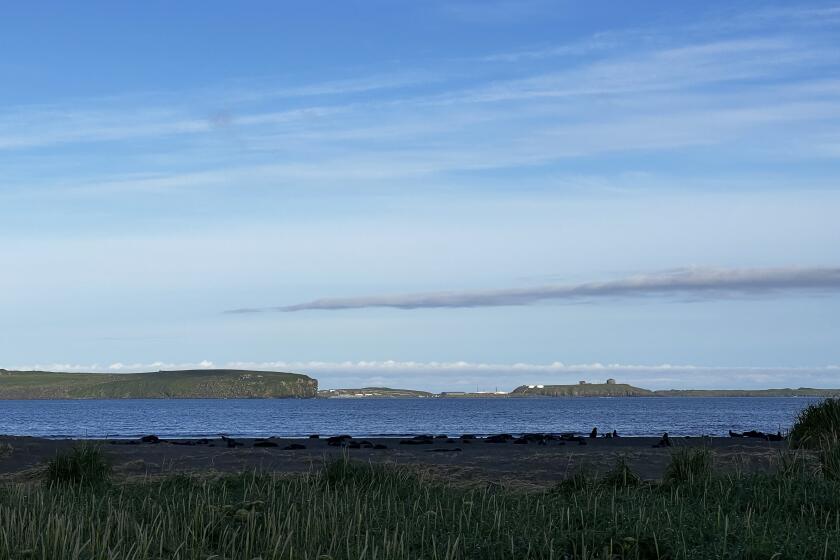For the Good of the Species : Keeping Animals Captive in Zoos Might Prolong Their Stay on Earth
DOES AN Asian lion or a bottle-nosed dolphin care whether it is a captive? As serious scientists, most animal managers would scoff at any suggestion that animals necessarily suffer because they are contained. There is no evidence that even the most intelligent animals have any perception of captivity. A compelling case could be made that, if one considers the best interests of animals as individuals, they are better off in zoos than in the wild. They live longer lives, their toenails clipped, cataracts removed, lacerations stitched and hunger sated with carefully balanced, sometimes vitamin-enriched foods. Animals in inhumane, overcrowded, filthy exhibits forced to live outside natural social groupings or denied the opportunity to practice natural behaviors may indeed suffer. But Heine Hediger, the renowned director of the Zurich Zoo, once opined: “If all the needs of the animal are adequately met, the zoo offers its inhabitants a man-made, miniature territory with all the properties of a natural one. The animal will then consider the territory its own: It marks and defends the area and does not feel imprisoned.”
In the end, the aversion to animals in captivity may be a purely human one. My own disgust with an old prison-style menagerie comes in large part from that love of wild places and subsequently from a sense of dismay that magnificent creatures are so demeaned--presented for the purpose of being gawked at in a tiny, barred cell.
But to some who care about wildlife, even the most naturalistic exhibit is still a container for creatures not meant to be contained. Despite whatever verdant elegance a designer may have given a box, it is still a box with wild animals living in it rather than where they should be. Yet in many cases “where they should be” isn’t there anymore. Put simply: (1) habitat , an ecologist’s word, is the area where a plant or animal lives; (2) habitat is limiting--the number of brook trout in a mountain pond cannot increase beyond the pond’s limitations; (3) habitat is vanishing at a staggering rate. Grasslands, wetlands and, most of all, the forests of Africa, Asia and South America are being torched, bulldozed, filled and drained out of existence. The species that live in those habitats are losing their homes, and they are vanishing.
My son, Benjamin, will finish high school in the year 2001. If the prevailing view of some of the world’s leading biologists is correct, one-fifth of the species that existed on the day of his birth will have been extirpated by then.
From “A Crowded Ark,” by Jon R. Luoma, published by Houghton Mifflin Co., Boston. Copyright 1987 by Jon R. Luoma. Reprinted by permission.
More to Read
Sign up for Essential California
The most important California stories and recommendations in your inbox every morning.
You may occasionally receive promotional content from the Los Angeles Times.










